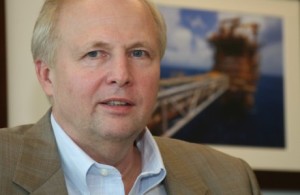BP energy group, which has already cut hundreds of jobs in Aberdeen and thousands around the world, is expected to announce spending reductions of over 10%
London, UK | – British multinational energy giant, BP Plc will on Tuesday unveil plans to slash billions of pounds off its capital spending programme in a bid to counter the impact of plunging oil prices and a 40% fall in its fourth quarter profits.
The company, which has already cut hundreds of jobs in Aberdeen and thousands around the world, is expected to announce spending reductions of over 10% bringing the official target below $22bn (£15bn) for 2015.
Bob Dudley,BP’s chief executive, is expected to further sweeten the pill for investors by making no changes to the dividend while not making any further specific redundancies.
BP said in December that it was taking a $1bn charge to pay for restructuring – almost all for job cuts – and has since made local announcements about new staffing levels in Houston, Trinidad and Azerbaijan.
The latest cost-reductions come as BP is expected to report profits of around $1.5bn for the last three months of its financial year. Peers such as Shell will reduce expenditure by $15bn over the next three years, Chevron is to cut 13% of spending to $35bn after reporting a 30% plunge in final quarter earnings, while ConocoPhillips slashed its capital expenditure by 33% to $11.5bn.
ExxonMobil, the world’s largest quoted oil company, will also unveil its strategy for dealing with a Brent blend oil prices which has fallen to around $50 a barrel from $115 in June last year.
BP’s previous target was to spend between $24bn and $25bn in 2014 although the final outturn for the year was expected to have already fallen to $23bn and the company is now expected to try to ensure the official target in 2015 is even lower.
The company is particularly vulnerable to lower commodity prices because it is still suffering financially from ongoing fallout from the Deepwater Horizon accident of 2010 in the Gulf of Mexico and from its risky investments in Russia.
Last week the British-based oil company raised more cash to pay for its Gulf liabilities by handing over a larger stake and operatorship of the Gila and Tiber fields in US waters to Chevron and ConocoPhillips.
BP had already divested $42bn worth of assets up to the end of the third financial quarter of the 2014/15 financial year and will update the market of its progress in disposing of a further $6bn that includes Gila and Tiber. Latest court judgements in the US still leave BP potentially open to a fine under the Clean Water Act for pollution of a further $13.7bn.
Dudley will also try to reassure investors that the 20% holding in the largely state-owned Rosneft oil company is still a positive asset despite sanctions by the West on Russia over the Ukraine.
There has been speculation that the ability of Rosneft to pay a hefty annual dividend to BP in the summer is seriously endangered by the fall in energy prices and debt problems at sanction-hit Rosneft.



